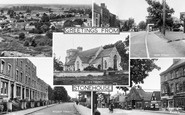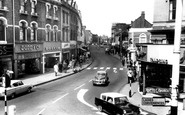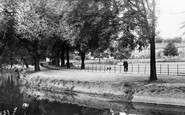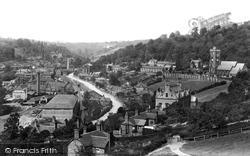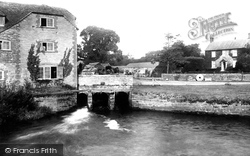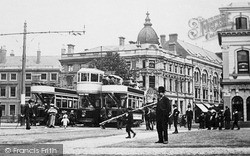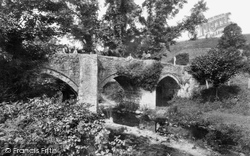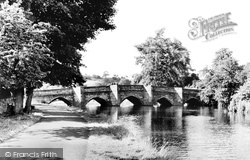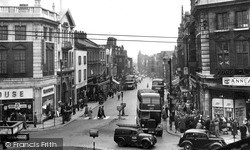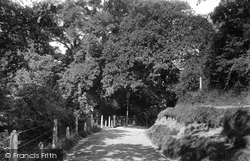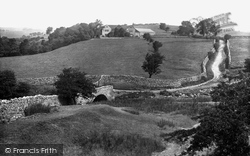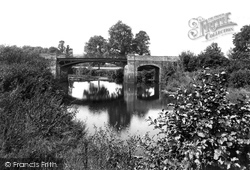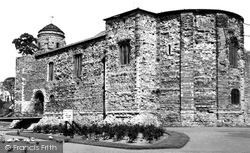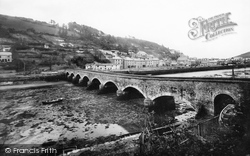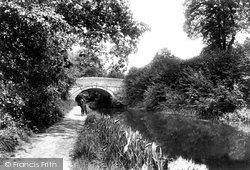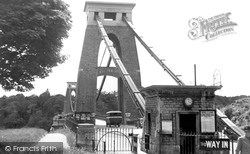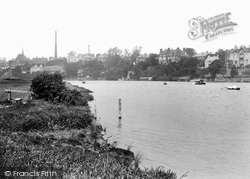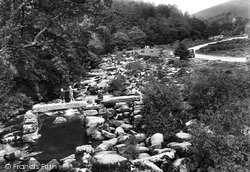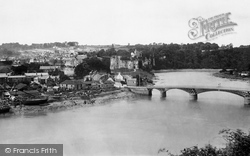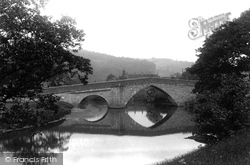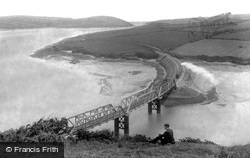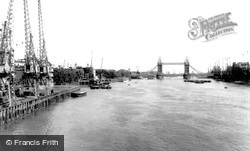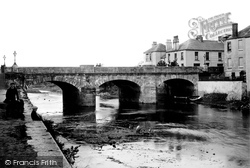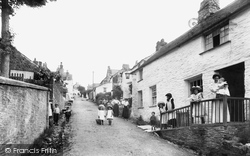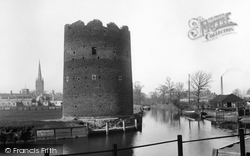Places
17 places found.
Those places high-lighted have photos. All locations may have maps, books and memories.
- Bridge End, Oxfordshire
- Bridge End, Lincolnshire
- Bridge End, Essex
- Bridge End, Bedfordshire
- Bridge End, Clwyd
- Bridge End, Warwickshire
- Bridge End, Surrey
- Bridge End, Durham (near Frosterley)
- Bridge End, Northumberland (near Hexham)
- Bridge End, Hereford & Worcester (near Tirley)
- Bridge End, Hereford & Worcester (near Bosbury)
- Bridge End, Shetland Islands
- Bridge End, Cumbria (near Carlisle)
- Bridge End, Northumberland (near Hexham)
- Bridge End, Devon (near Kingsbridge)
- Bridge End, Devon (near Sidmouth)
- West End, Yorkshire (near Pateley Bridge)
Photos
38 photos found. Showing results 901 to 38.
Maps
520 maps found.
Books
Sorry, no books were found that related to your search.
Memories
1,928 memories found. Showing results 451 to 460.
Newington Terrace
When I was young in the 1950s I would spend some weeks of my summer vacation at my grandparents' house at 11 Newington Terrace, Elizabeth and Albert Torr. I remember swimming in the river, we would go to the weir and remove some ...Read more
A memory of Craven Arms by
Tinker Tailor Solder Sailor 1916
Lynette Carter nee Evans My grandfather was Romany Gypsy, Stephen Evans, who better known as (Stinny)? During 1916 he lived in Gorseion, while his wife; my grandmother Mary Ellen Boswell lived in Gowerton. Nobody ...Read more
A memory of Gorseinon in 1900 by
Childhood 1952 Onwards
I think Stonehouse had something for every age growing up. Brownies, cubs, scouts, and guides. A youth club and a coffee bar. Always somewhere to explore, the canal, Doverow for sledging, the brickworks and always scrogging ...Read more
A memory of Stonehouse in 1952 by
The Quadrant
I used to live in Niton Road, Richmond and used to catch the bus at the top of the Gas Works bridge and get off at the Quadrant, from when I worked 1961-1967 until I married and moved to Kent late 1967. I worked at a ...Read more
A memory of Richmond by
Pitt Crescent Durnsford Road Sw19
I was brought in council flats overlooking Wimbledon train depot and Gap Road Cemetery. It was grim but being young we saw the paved area in the "front" of the flats as a football stadium and cricket field in the ...Read more
A memory of Wimbledon
Fletton School
Does anyone remember the school behind Farrows factory beside the railway on the bridge/hill? I have many memories of walking past it with my mum, Gertrude Nightingale (nee Davis), she would tell me stories of the teachers there, ...Read more
A memory of Old Fletton by
My Granmother
Last thoughts, for her, was my father's mother, did see her, I remember in a place called CULTURE HOUSE, next to old police station, just as you come over railway bridge, on left hand side, on the way to JARROW. I think she ran a bed ...Read more
A memory of Hebburn by
Sunday Football
Although l tended to spend most of my free days playing at near by Hilly Fields, it being nearer to my home, l do have a few memories of playing at the Wreak, that's the name, we as kids knew it by. As a pupil at Lewisham Bridge ...Read more
A memory of Lewisham by
Park Court ~ Balham Park Road
My Aunt & Uncle (Ella & Cecil Forbes) lived in a two bedroom flat in Park Court in Balham Park Road from 1948 & throughout the 1950s and I spent much time staying with them as my parents ran pubs in The City. ...Read more
A memory of Balham in 1955
Family Visits
I have many memories of visiting my Grandparents, George and Liza Ireland, who lived on the end of Major's Terrace, (I think it was called then) next door to the Crown and Anchor (now the Pottery). A particular fond memory is of my ...Read more
A memory of Mosterton in 1949 by
Captions
1,755 captions found. Showing results 1,081 to 1,104.
Abraham Darby bought a furnace in 1706 and began experimenting with ways of smelting iron by using coke rather than charcoal In 1709 he mastered the technique and changed the world.
Just south-east of Stopham Bridge is the confluence of the Arun and its most important tributary, the Western Rother, previously known as the Turning Stream or Westwater, which extended to Fittleworth,
The Bridge was a busy tram interchange and terminus. After Wolverhampton, Walsall is the largest of the Black Country towns.
It is high summer, judging by the height of the River Teign and the shirt sleeves of the farm labourers.
Bakewell's five-arched 14th-century bridge over the River Wye is one of its greatest glories. It is still carrying traffic 600 years after it was built.
This view looks back towards the junction with Church Street and Peel Street again; the upper view of the buildings is little changed from earlier days.
The corner of Bridge Street and Buttermarket Street (left) was rebuilt just before the First World War. By 1955 the old-established butchers, Singletons, had given way to Woodhouse's furniture shop.
Such were the number of visitors navigating the overgrown and makeshift route from the town centre to the beach that the Windsor estate prioritised the construction of a more permanent path.
Hammerton Hall lies in a crook of the River Hodder, with a stream called Barn Gill and its waterfall in the grounds. The bridge in the foreground is over the Barn Gill.
This Victorian structure replaced the old bridge. The metal central span was later rebuilt using stone, and until the building of the by-pass in 1974 it carried the heavy traffic of the A30.
This view shows the bridge into the castle, recently renewed, and the apse or semi-circular projection. This, like the one at the Tower of London, housed the castle chapel.
A much earlier bridge was replaced by this one in 1853; at that time, the harbour was being improved for the export of copper ore and import of coal.
The name of the bridge reflects the local trade which once existed in the area and, as in 60080 (page 84), the level nature of the towpath was an attraction for walkers 100 years ago, as
In 1752, William Vick bequeathed money towards the eventual bridging of the Gorge. It was not until 1829 that a competition was held for engineers and architects to submit designs.
The park on the south side of the old Dee bridge is known as Edgar's Field in memory of the Saxon king, Edgar.
The meeting of the East and West Dart rivers has drawn tourists for as long as transport has been available.
This stretch of the river to the left of the bridge is now Riverside Gardens, but in 1893 it was known as Gunstock Wharf.
The elegant double-span bridge over the River Derwent at Froggatt dates from the 17th century; it is unusual in that it has a large, pointed central arch nearer to the village and a smaller one on the
The last train was on 28 January 1967, and the line is now the Camel Trail, a superb cycleway. The bridge in the picture is just south of Padstow.
The camera is probably on London Bridge, looking downstream across a quieter Pool. To the right is Pickle Herring Quay and Hay's Dock.
This Victorian structure replaced the old bridge. The metal central span was later rebuilt using stone, and until the building of the by-pass in 1974 it carried the heavy traffic of the A30.
Out of sight and beyond the bridge to the left is the new County Hall.
Children and their mothers pose while the men are out at work, fishing or farming. Slate slabs form bridges over the roadside gutters.
This massive medieval structure, formed of flint and ruddy Dutch bricks, squats close by the river, near Bishop Bridge.
Places (17)
Photos (38)
Memories (1928)
Books (0)
Maps (520)



